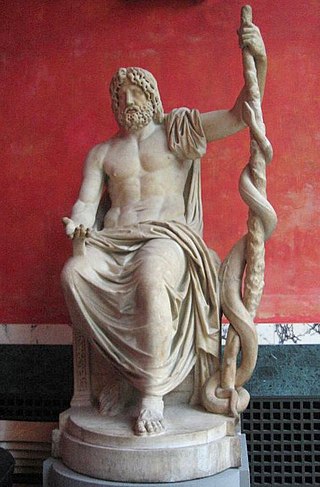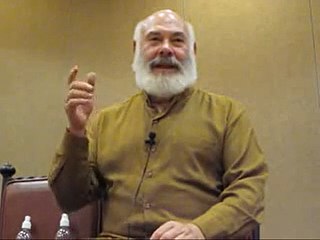Alternative medicine is any practice that aims to achieve the healing effects of medicine despite lacking biological plausibility, testability, repeatability, or evidence from clinical trials. Complementary medicine (CM), complementary and alternative medicine (CAM), integrated medicine or integrative medicine (IM), and holistic medicine attempt to combine alternative practices with those of mainstream medicine. Alternative therapies share in common that they reside outside of medical science and instead rely on pseudoscience. Traditional practices become "alternative" when used outside their original settings and without proper scientific explanation and evidence. Frequently used derogatory terms for relevant practices are new age or pseudo- medicine, with little distinction from quackery.

Medicine is the science and practice of caring for a patient, managing the diagnosis, prognosis, prevention, treatment, palliation of their injury or disease, and promoting their health. Medicine encompasses a variety of health care practices evolved to maintain and restore health by the prevention and treatment of illness. Contemporary medicine applies biomedical sciences, biomedical research, genetics, and medical technology to diagnose, treat, and prevent injury and disease, typically through pharmaceuticals or surgery, but also through therapies as diverse as psychotherapy, external splints and traction, medical devices, biologics, and ionizing radiation, amongst others.

Deepak Chopra is an Indian-American author and alternative medicine advocate. A prominent figure in the New Age movement, his books and videos have made him one of the best-known and wealthiest figures in alternative medicine. His discussions of quantum healing have been characterised as technobabble – "incoherent babbling strewn with scientific terms" which drives those who actually understand physics "crazy" and as "redefining Wrong".
A medical error is a preventable adverse effect of care ("iatrogenesis"), whether or not it is evident or harmful to the patient. This might include an inaccurate or incomplete diagnosis or treatment of a disease, injury, syndrome, behavior, infection, or other ailment.

Stephen Joel Barrett is an American retired psychiatrist, author, co-founder of the National Council Against Health Fraud (NCAHF), and the webmaster of Quackwatch. He runs a number of websites dealing with quackery and health fraud. He focuses on consumer protection, medical ethics, and scientific skepticism.

Traditional Korean medicine refers to the forms of traditional medicine practiced in Korea.

Andrew Thomas Weil is an American celebrity doctor who advocates for alternative medicine including the 4-7-8 breathing technique.
Anthroposophic medicine is a form of alternative medicine based on pseudoscientific and occult notions. Devised in the 1920s by Rudolf Steiner (1861–1925) in conjunction with Ita Wegman (1876–1943), anthroposophical medicine draws on Steiner's spiritual philosophy, which he called anthroposophy. Practitioners employ a variety of treatment techniques based upon anthroposophic precepts, including massage, exercise, counselling, and substances.

Henry Judah Heimlich was an American thoracic surgeon and medical researcher. He is widely credited as the inventor of the Heimlich maneuver, a technique of abdominal thrusts for stopping choking, first described in 1974. He also invented the Micro Trach portable oxygen system for ambulatory patients and the Heimlich Chest Drain Valve, or "flutter valve", which drains blood and air out of the chest cavity.
Unwarranted variation in health care service delivery refers to medical practice pattern variation that cannot be explained by illness, medical need, or the dictates of evidence-based medicine. It is one of the causes of low value care often ignored by health systems.

David B. Agus is an American physician and author who serves as a professor of medicine and engineering at the University of Southern California Keck School of Medicine and Viterbi School of Engineering and the Founding Director and CEO of the Lawrence J. Ellison Institute for Transformative Medicine. He is also the cofounder of several personalized medicine companies and a contributor to CBS News on health topics.

Neil Barnett Shulman is an American doctor and medical writer, who is Associate Professor in the School of Medicine at Emory University. He has conducted and published clinical research on hypertension and is the co-founder of the International Society on Hypertension in Blacks. He is the author of many books promoting medical literacy for both adults and children, as well as humor and children's books. He is the associate producer of the 1991 film Doc Hollywood, based on one of his books.
Unnecessary health care is health care provided with a higher volume or cost than is appropriate. In the United States, where health care costs are the highest as a percentage of GDP, overuse was the predominant factor in its expense, accounting for about a third of its health care spending in 2012.
Ian Olver AM is an Australian medical oncologist, cancer researcher and bio-ethicist. He is a former chief executive officer of Cancer Council Australia and a noted authority and media commentator on cancer issues.
Marisa C. Weiss, M.D. is an American oncologist, living in Philadelphia, the founder and president of Breastcancer.org, which provides medical and personal information on breast health and breast cancer. She is also a founder and past president of the national nonprofit Living Beyond Breast Cancer.

The medical–industrial complex is a network of interactions between pharmaceutical corporations, health care personnel, and medical conglomerates to supply health care-related products and services for a profit. The term is a product of the military–industrial complex and builds from the basis of that concept.
Vinayak K. Prasad is an American hematologist-oncologist and health researcher. He is a professor of Epidemiology and Biostatistics at the University of California, San Francisco (UCSF). He is the author of the books Ending Medical Reversal (2015) and Malignant (2020).

Elisa Rush Port FACS is Associate Professor of Surgery at the Icahn School of Medicine at Mount Sinai Hospital, as well as cofounder and director of the Dubin Breast Center at the Tisch Cancer Institute at Mount Sinai Health System, since 2010. She has received four research grants, has served as an investigator or co-investigator on 15 clinical trials, published 44 peer-reviewed articles, and published a total of 12 book chapters and books. She has specialized in sentinel-node biopsy, a diagnostic method that determines cancer stages based on spread to regional lymph nodes, nipple sparing mastectomy, and the use of MRI for breast cancer.










